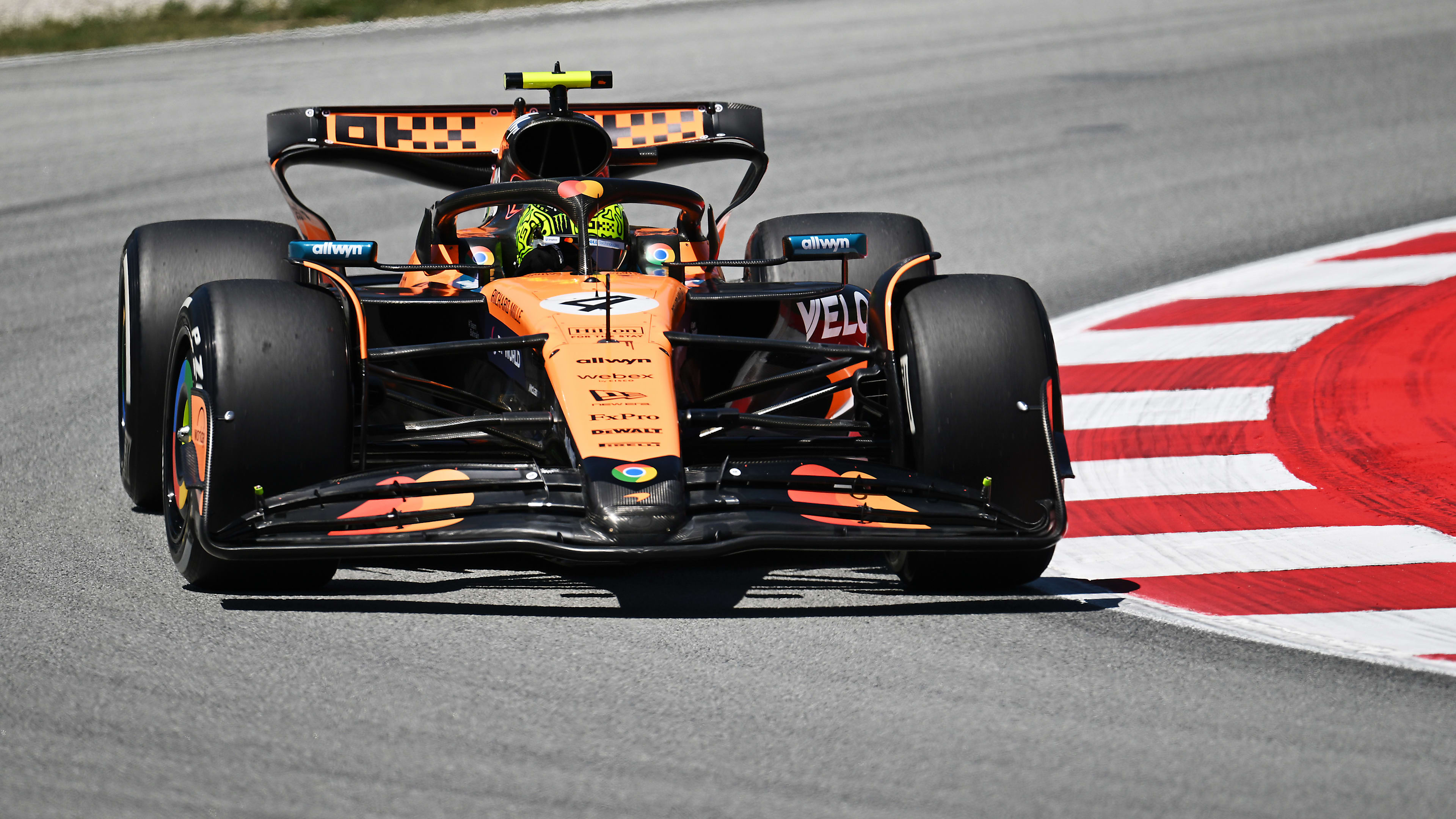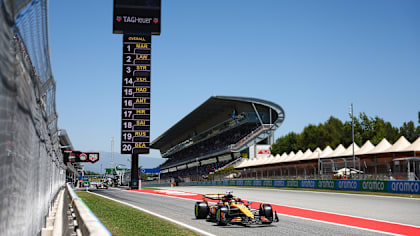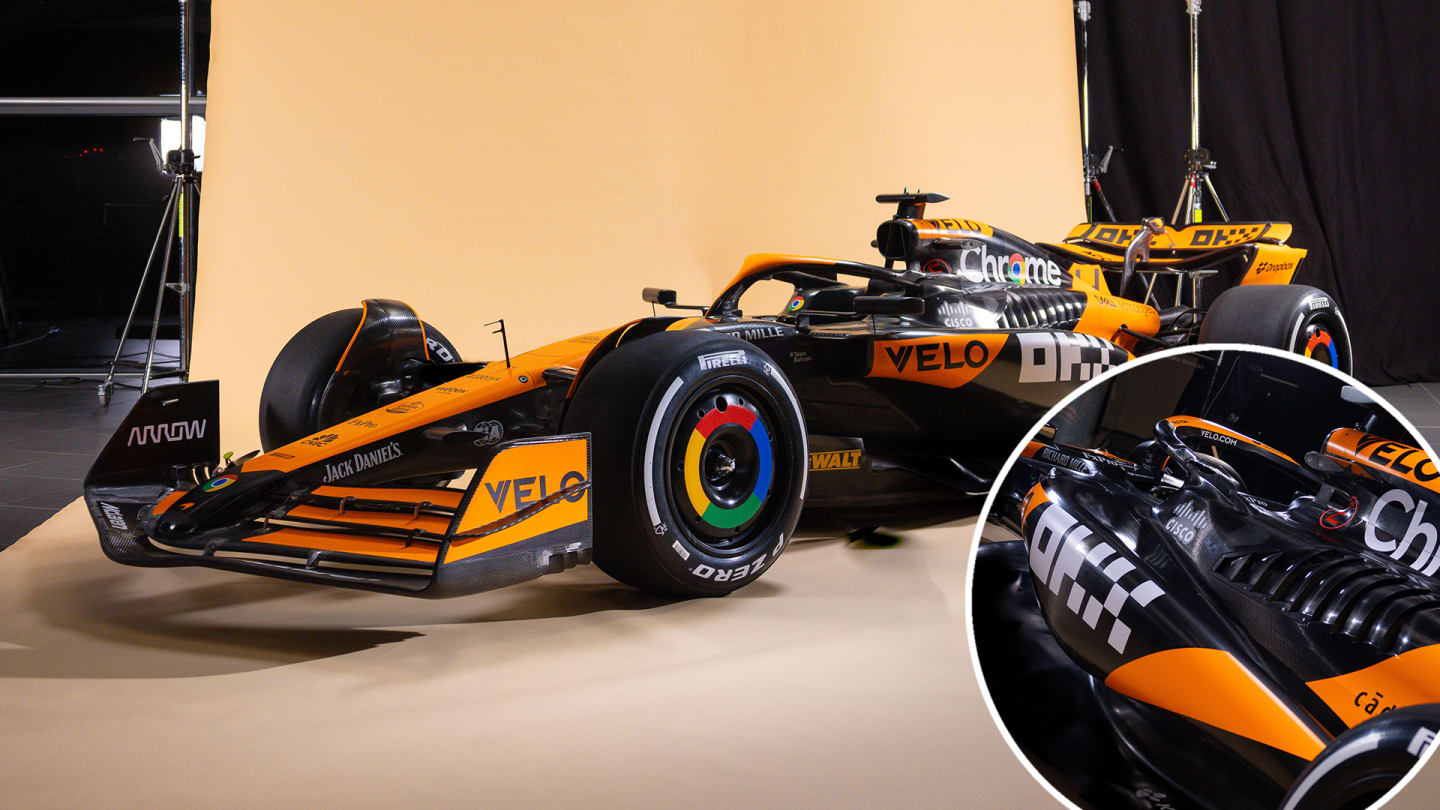
Technical
TECH ANALYSIS: How McLaren have taken their impressive 2023 updates to another level on the MCL38

Share

McLaren’s new MCL38 – the first car to be developed in the team’s new on-site wind tunnel – follows the development direction seen with the major upgrades of last year’s car. But this time there are some fundamental physical hard points rearranged to further exploit that direction.
Last year’s Austria upgrades – which completely reworked the front of the sidepod for a bigger undercut and greater separation of the radiator inlet from the lower part of the sidepod front – transformed the competitiveness of the car.
FIRST LOOK: McLaren present new F1 car ahead of Silverstone shakedown
With the new MCL38, that sidepod has been quite radically reworked, with the upper side impact bar now exposed (a Mercedes innovation from 2022) and used aerodynamically in conjunction with an enhanced lip on the radiator inlet to accelerate the flow along the top of the sidepod.
As with all this generation of car, changes in the sidepod geometry are just the visible manifestation of the efforts to enhance the airflow through the underbody, which is where the bulk of performance improvement potential resides.
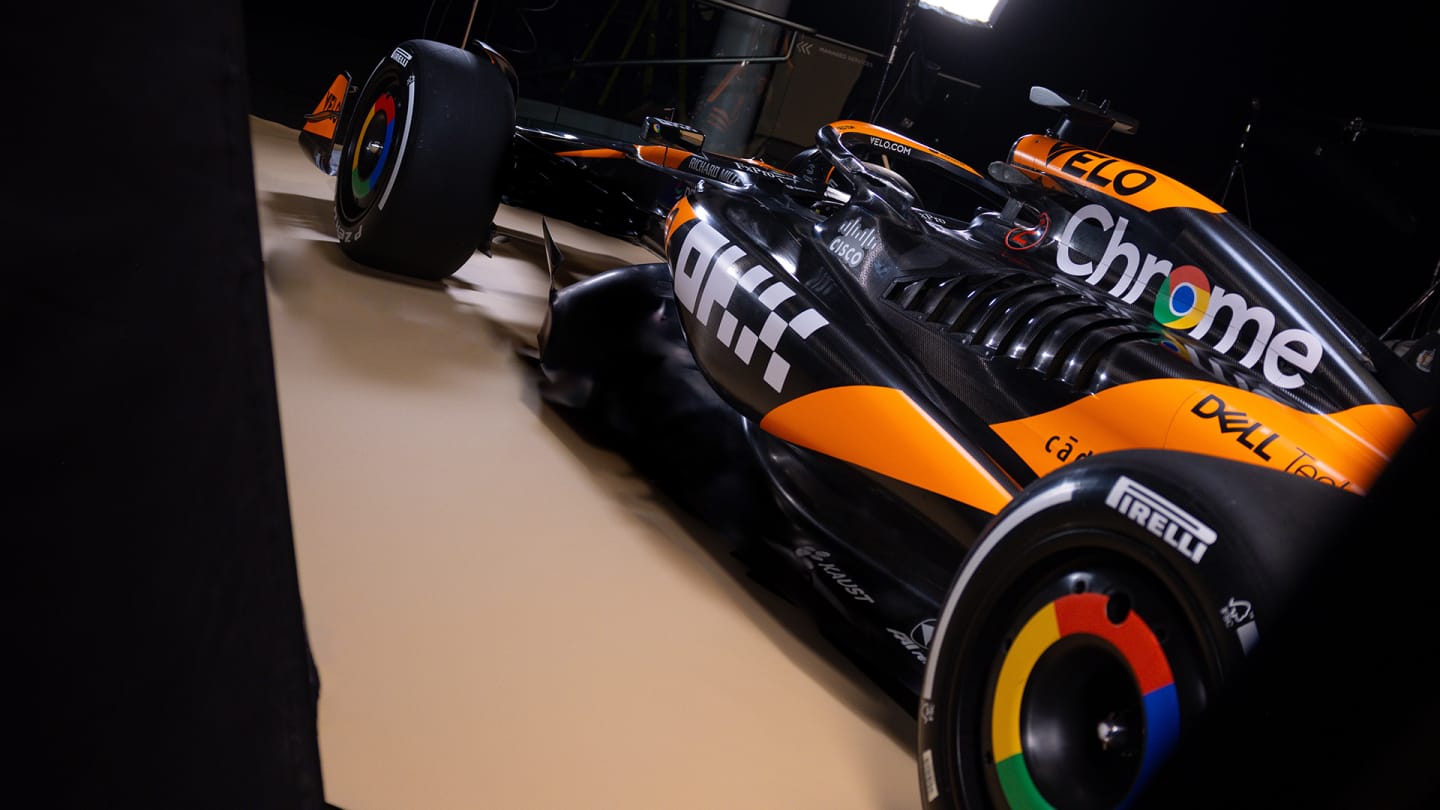
McLaren showed off their new F1 car, the MCL38, on Wednesday morning
It’s not only about inducing the floor to generate more ground effect, but having the downforce available at the widest possible spread of speeds and car attitudes to enhance the lap time. There will always be compromise necessary in this and as teams iterate and re-iterate their designs, so the new understandings tend to demand changes to the physical hard points of the chassis.
McLaren has decided to create space at the front of the sidepod to allow it to expose the upper side impact (SIS) bar, as described, to give better airflow over the top of the sidepods. This should counter the tendency for the sidepod tops to create lift and to help give a more efficient, less draggy, airflow around the radiator inlets at speed.
GALLERY: Check out more angles of the new McLaren MCL38 challenger
The more efficient this airflow, the less it will interfere with the flow travelling to the rear of the car along the underside of the sidepods and the floor edges. Those flows are crucial in really energising how hard the diffuser works and therefore how much downforce the underbody creates – especially at the higher ride heights seen on low-speed corners.
To achieve this, it appears that yet more radiator area has been moved away from the front of the sidepod to the centreline above, around the cooling louvres. Although this will entail an increase in the car’s centre of gravity height, the aerodynamic gains have taken priority.
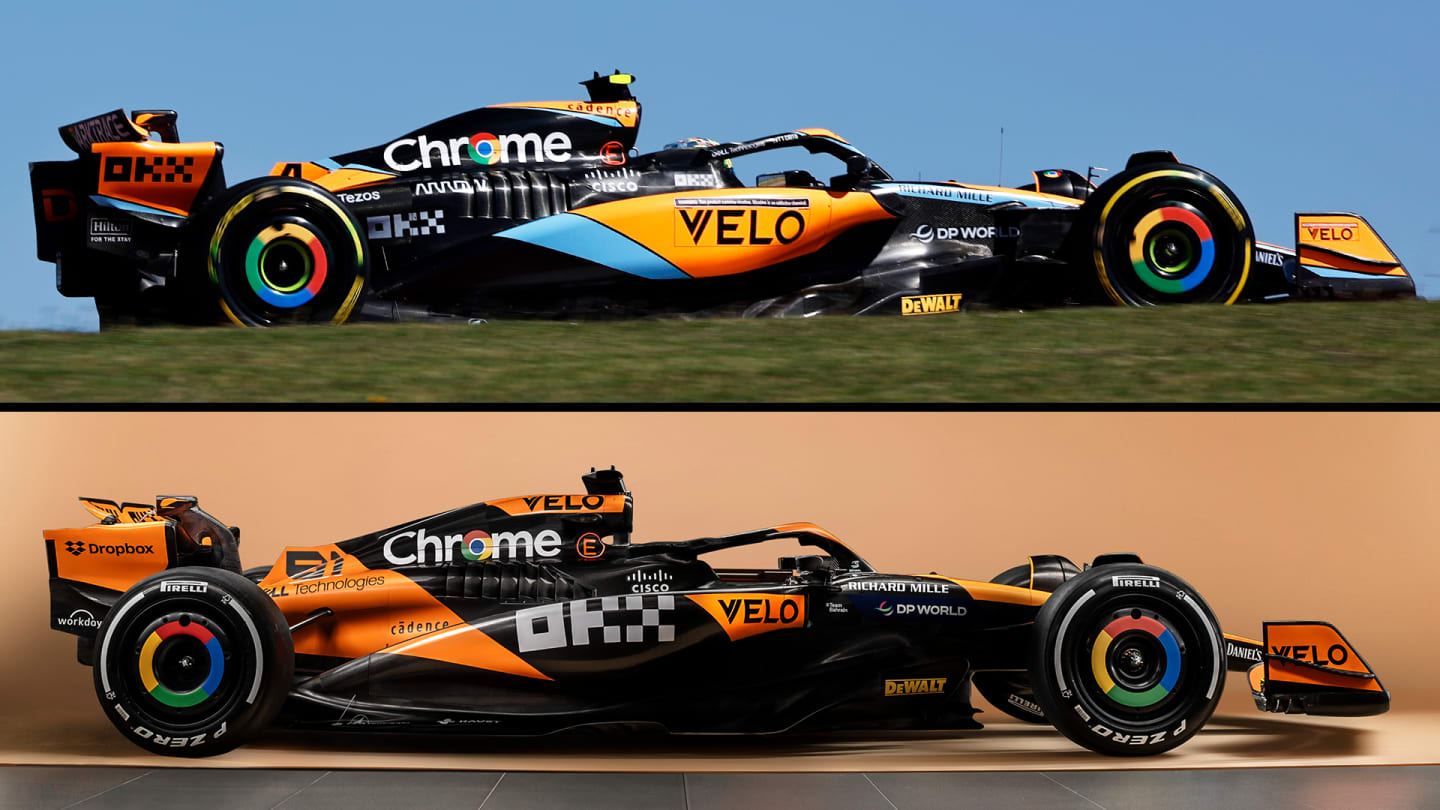
The comparison between the 2023 car (top) and that of 2024 (bottom) shows how much area has been taken away from the lower part of the sidepod front and how some radiator area appears to have been re-sited further up, around where the cooling louvres are
Team Principal Andrea Stella was quite upbeat recently about the extent of those gains, saying: “When it comes to the wind tunnel development and the CFD development, we see that the gradient we established last year, that led to the Austria development and then the Singapore development, it seems like we can maintain it. So that’s also where I would expect the launch car to be at the start of the season.”
The MCL38 conforms to the trend of enhanced levels of anti-dive on the front suspension, with the rearward upper wishbone now mounted lower. This is to keep the aerodynamic platform flatter as the car tries to pitch and dive.
WATCH: The incredible story of how the McLaren MP4/4 redefined dominance in F1
It’s not only the wind tunnel which has come online with this car, as Stella emphasises. “It’s been developed in the new simulator, and composite and metallic parts are being produced in the new manufacturing infrastructure and facilities that we have delivered,” he added.
The changes to the car from last year made possible by the new physical hardpoints should just be the platform for more, something which Stella hints at. He continued: “In the background, we are already starting to work on the further developments that we hope to bring relatively soon in season and they also seem to be quite interesting.”
YOU MIGHT ALSO LIKE
Live Blog AS IT HAPPENED: Follow all the action from first practice for the Spanish Grand Prix
News Piastri assesses prospects for Barcelona after ‘most challenging weekend of the year so far’ in Monaco
Report F2: Lindblad in scintillating form as he takes maiden pole in Barcelona
FeatureF1 Unlocked PADDOCK INSIDER: Norris’ Monaco win breathed new life into the title fight – can he back that up in Spain?
